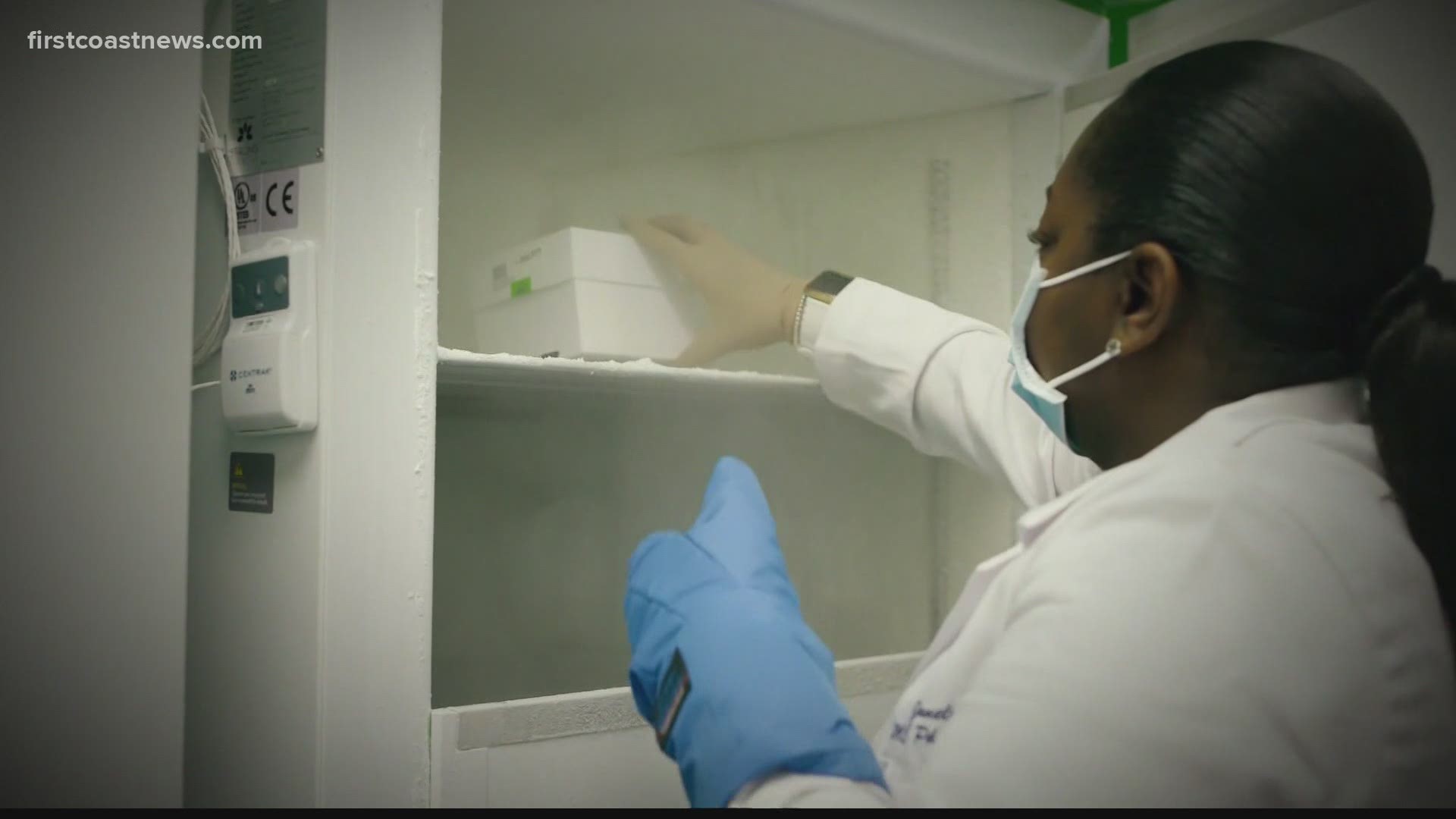JACKSONVILLE, Fla — Will you be at the front of the line for the coronavirus vaccine when it's available?
What usually causes someone to say "no" is a lack of trust? Now boots are on the ground in Jacksonville to change that with some of the people hit hardest by the virus: minorities.
Universities and health care centers are partnering with people who are already known and trusted within minority communities. They say the messenger matters.
"Trust, that is the number one thing," said Dr. Folakemi Odedina, University of Florida professor and program director for the CARE2 Health Equity Center.
Nearly one in three people who get the coronavirus in Duval County are Black yet only a fraction of Black people and people who are other racial minorities participate in vaccine trials.
"One of the participants from Jacksonville puts it very well and said, 'I need to know I can trust the person who is asking me to participate in the trials,'" Odedina said.
She is working to change that and create confidence in a COVID-19 vaccine. Florida is one of 11 states being funded by the National Institutes of Health to provide outreach to minority communities.
They want the messages about COVID-19 information to come from trusted sources inside those communities. In Jacksonville it means community advocates like Charles Griggs with 100 Black Men take the reins.
"I certainly hope that we are all taking the time to do the research on our own and we're taking the time to inform our family members and be practical about the information we're sharing and not just believe the first thing we hear," said Griggs, who also works with the Florida Health Equity Research Institute.
He hopes this is the beginning of getting more Black and Latino people involved in clinical trials for other health problems, not just COVID-19.
"It's important especially for people of color, we don't really participate in clinical trials," Griggs said. "In order for us to get enough information that our medical system can adequately provide treatments that work for all people then we need to have a diversity of people participating in comparative studies and clinical trials."
This effort is called the Community Engagement Alliance Against COVID-19 Disparities and is made up of expert from UF, Florida International University, Florida A&M University, Moffitt Cancer Center, and Health Choice Network.

